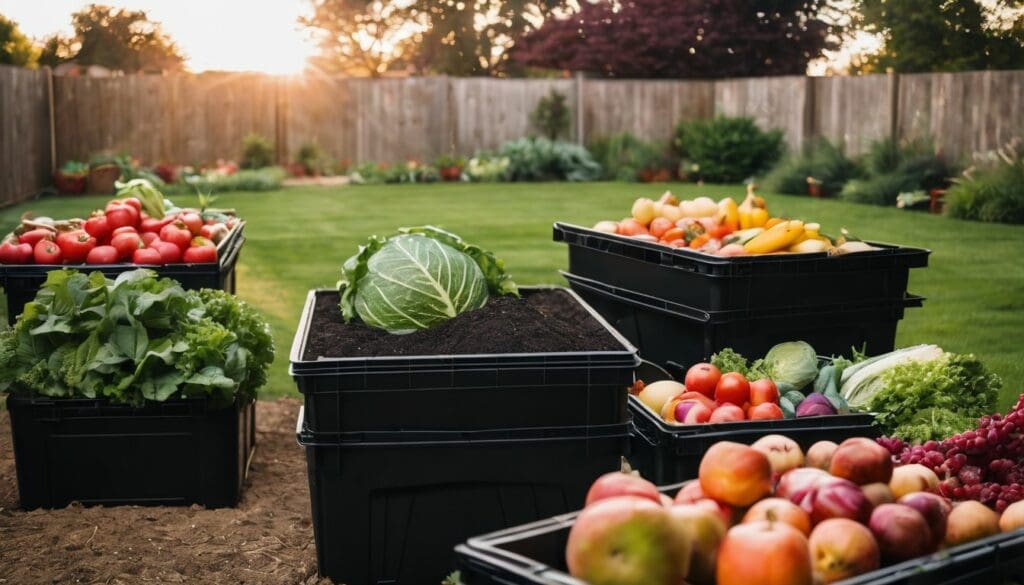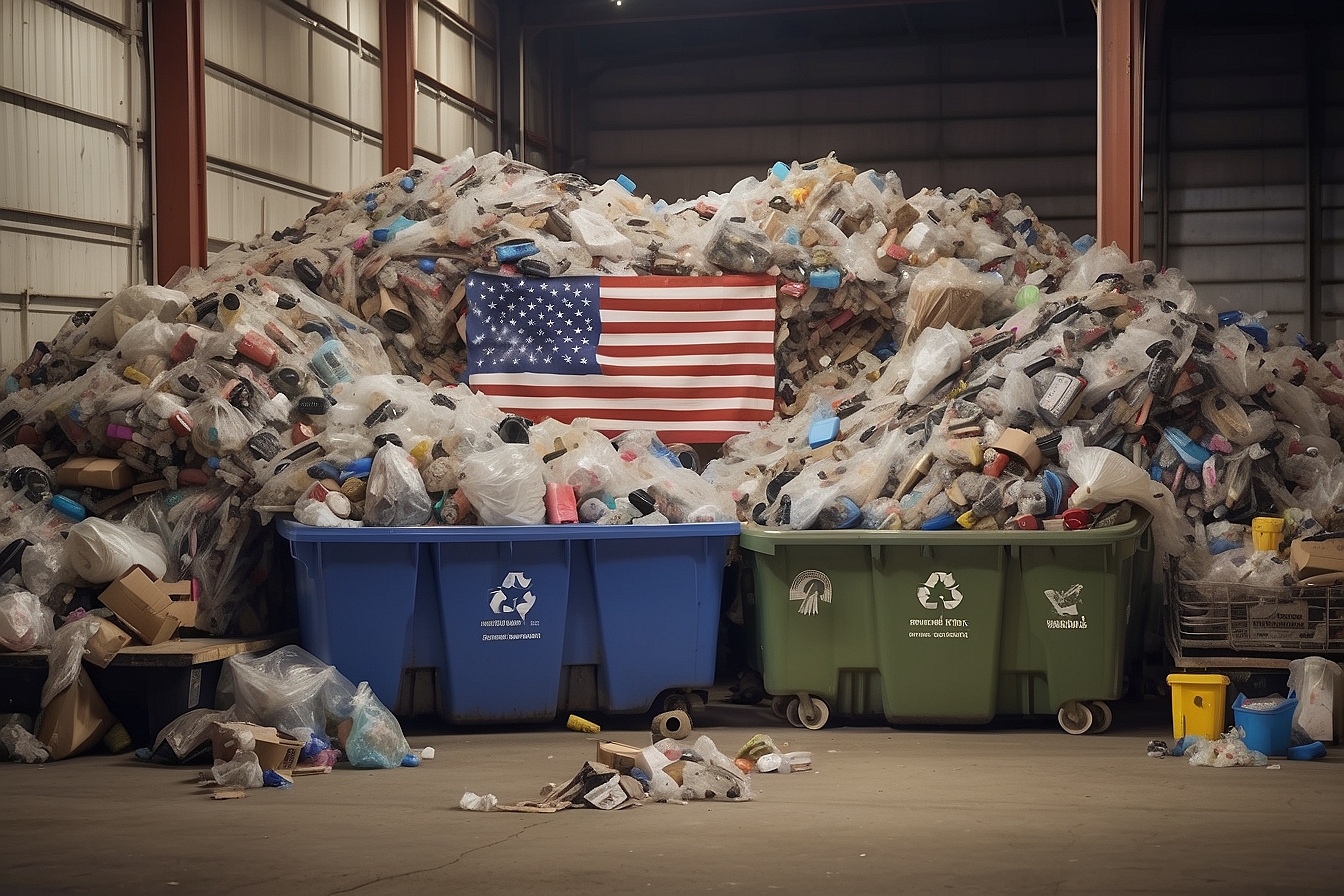We’re all too familiar with the disappointment that bubbles up when we have to bin food gone off before its time. Trust us, it’s a nuisance we’ve shared — startlingly enough, a third of the globe’s produced food never reaches our forks.
Our devoted team members have poured over the research to pinpoint effective strategies that can halt this kind of wastage in its tracks. This article is brimming with practical tips for fostering a kitchen ethos rooted in sustainability.
Let’s join forces and make strides towards positive change!
Key Takeaways
- Planning meals and controlling portions can help us buy only what we need, reducing the problem of food going to waste.
- Proper storage and preservation techniques keep our food fresh for longer, decreasing the amount that gets thrown out.
- Educating people about expiration date labels avoids good food being wasted because it’s misunderstood as off.
- Accepting imperfect – looking fruits and vegetables means less produce is rejected based on appearance alone, supporting sustainable farming practices.
- Efficient inventory management in stores makes sure surplus isn’t created unnecessarily, cutting down on overproduction.
What Causes Food Waste?
Lack of proper planning and portion control, poor storage and preservation, confusing expiration dates, consumer preference for perfect-looking produce, and overproduction contribute to the staggering amount of food wasted each year.
These factors are major culprits that lead to unnecessary wastage in our food system.
Lack of proper planning and portion control
We often overlook the impact that proper planning and portion control can have on reducing food waste. Picture this: we buy groceries with the best intentions, but end up throwing away untouched or spoiled food because we bought too much or didn’t use it in time.
By accurately planning our meals and being mindful of how much we prepare, we tackle a significant part of the problem. It’s about buying what we need, serving sizes that make sense for us, and understanding just how much food goes to waste when our eyes are bigger than our stomachs.
Effective portion control isn’t just good for sustainability; it also keeps us from overproducing which directly ties into another critical issue – poor storage and preservation techniques.
Let’s turn more attention towards ensuring that our good intentions in purchasing food translate into sustainable action, effectively preserving what we have before considering buying more.
Poor storage and preservation
To ensure food waste reduction strategies are effective, it’s crucial to address poor storage and preservation practices. Inadequate storage methods and improper preservation techniques can lead to premature spoilage of food items, contributing significantly to organic waste in landfills.
Using sustainable preservation methods, such as freezing or canning excess produce, helps minimise unnecessary disposal of perfectly edible food items. Properly storing perishable goods at the correct temperature and humidity levels not only extends their shelf life but also reduces the need for frequent restocking, supporting sustainable materials management while promoting environmental sustainability.
Implementing simple changes in how we store and preserve our food can make a substantial impact on reducing overall wastage. When we prioritise proper storage solutions and explore innovative preservation techniques, we actively contribute towards achieving our sustainable living goals by minimising landfill contributions through proactive action towards waste reduction.
Confusing expiration dates
Understanding expiry dates can be confusing and lead to unnecessary food waste. Clear and consistent labelling on products is crucial for consumers to make informed decisions about the freshness and safety of their food.
Ambiguous date formats and lack of standardisation can result in perfectly good food being discarded unnecessarily, contributing to environmental impact and wasted resources.
To address this issue, it’s important for manufacturers to adopt clear expiry date labels that are easily understandable by consumers. Educating shoppers about different types of expiry dates, such as “best before” and “use by,” will also empower them to make more informed choices about when they should consume or discard a product based on its actual condition.
Improving clarity around expiry dates is an essential part of reducing food waste and promoting sustainable consumption habits.
Consumer preference for perfect-looking produce
Consumers often overlook imperfect produce, leading to significant food waste. This unrealistic demand for flawless fruits and vegetables results in the rejection of perfectly edible items.
Promoting “ugly” produce and educating consumers on the quality and taste benefits can help reduce this unnecessary waste while supporting sustainable agriculture.
It’s crucial that we reconsider our expectations of perfect-looking produce to combat food waste. Shifting consumer preferences towards embracing all shapes and sizes of fruits and vegetables will contribute to more sustainable agricultural practices.
Overproduction and excess inventory
To address overproduction and excess inventory, we need to consider the impact of surplus food on our environment and community. Food being produced in surplus leads to unnecessary waste, placing a strain on natural resources and contributing to climate change.
This inefficiency can also result in additional costs for farmers and producers, affecting sustainable food production practices. Therefore, implementing more efficient inventory management systems is crucial for reducing overproduction and minimising excess inventory.
Furthermore, finding effective solutions to manage overproduction will contribute significantly towards achieving sustainable development goals while promoting conservation efforts within our communities.
Solutions for Reducing Food Waste
Implementing more efficient inventory management can help reduce food waste by ensuring that excess inventory is minimised and products are used before they expire. Educating consumers on proper food waste techniques, such as creative cooking with leftovers and understanding expiration dates, can also have a significant impact in reducing food waste.
Supporting and promoting food recovery and donation programmes can help redirect surplus food to those in need, effectively reducing the overall amount of wasted food.
Implementing more efficient inventory management
Efficient inventory management reduces food waste by aiding in the tracking and monitoring of stock levels, ensuring that products do not expire or spoil before use. It involves implementing systems to accurately forecast demand, rotating stock effectively, and identifying surplus items for timely redistribution or donation.
By optimising inventory management, we can minimise overproduction and surplus stock, ultimately reducing the volume of wasted food.
Improving inventory management is vital for achieving sustainable agriculture goals while positively impacting both our environment and communities. It supports the conservation of resources and minimises unnecessary waste generation, contributing to a more sustainable future for all.
Educating consumers on proper food waste techniques
Educating consumers about proper food waste techniques is crucial in our mission for sustainability. By raising awareness and providing practical tips, we empower individuals to make a positive impact on the environment.
Encouraging mindful shopping, smart portioning, and creative ways to use leftovers helps reduce food waste, promoting sustainable practices and supporting climate goals. Sharing knowledge about food preservation and shelf-life management also plays a key role in promoting food conservation and supporting environmental sustainability efforts.
Empowering consumers with information about proper food waste techniques strengthens community impact by fostering responsible consumption habits. This approach not only addresses individual actions but contributes significantly to reducing the environmental impact of food waste at large scale.
Supporting and promoting food recovery and donation programs
After educating consumers on proper food waste techniques, it is essential to support and promote food recovery and donation programmes, which play a crucial role in reducing food waste.
By partnering with local organisations and businesses, we can work towards redirecting surplus food from landfills to those in need. This effort not only contributes to food security but also aligns with our climate goals by minimising methane emissions from decomposing organic matter.
Engaging in these initiatives helps us create a more sustainable and resilient food system while promoting a sense of community involvement and social responsibility.
Furthermore, supporting and promoting food recovery and donation programmes directly contributes to enhancing food sustainability efforts. It allows for the reutilisation of edible yet surplus produce that would otherwise go to waste, catering to both environmental conservation priorities as well as addressing issues related to hunger and access to nutritious foods.
Conclusion
By reducing food waste, we pave the way for a more sustainable future. Implementing efficient inventory management is essential in curbing food loss. Educating consumers on proper food waste techniques and supporting recovery programmes are crucial steps towards a greener planet.
Together, we can make a real difference in minimising food wastage and protecting our environment.
FAQs
1. What is food waste and why is it a problem?
Food waste refers to the good quality food that gets thrown away instead of being eaten. It’s a big issue because when we waste food, we also waste the resources that went into growing it and contribute to environmental damage.
2. How can reducing food waste help with sustainability?
When we cut down on our food loss, less garbage ends up in landfills where it can create greenhouse gases. Managing our food better means using our planet’s resources more wisely and helping out nature.
3. What are simple steps I can take to reduce my own food waste?
To lower your own household’s wasted grub, you could plan meals ahead of time, only buy what you need, store foods correctly so they last longer and get creative with leftovers!
4. Can businesses play a role in cutting back on wasted food too?
Absolutely! Restaurants and supermarkets can manage their stock better by keeping an eye on expiration dates and donating unsold edible items to charities or turning them into compost for gardens rather than tossing them out.





